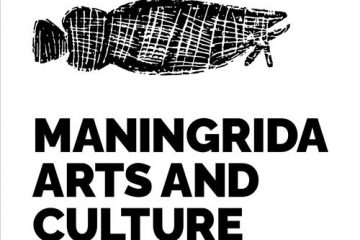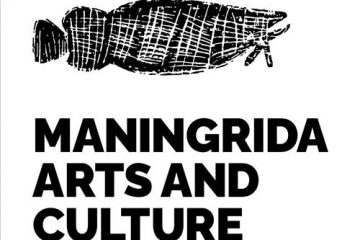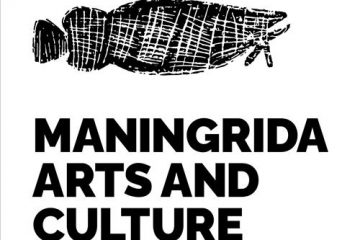111982138928
Barrmanj
This story is djang from Maliyanak country. In the creation times, the Barrmanj jumped over the land, and swapped places with the Wamba (shark). Originally, the Barrmanj was living in the saltwater and the Wamba was living in the freshwater- they swapped country, and now they live in opposite water parts of Arnhem Land country. This Barrmanj has an important song line that is shared between the Rembarrnga and Kune language groups. These language groups are linked together in a relationship people refer to as like a mother and daughter relationship – Kune being the karrang (mother) language and Rembarrnga language being the wurdjaw (child). This song line belongs to the people of the Dhuwa moiety, meaning all associated ceremony rituals must be conducted by people from Yirritja who form the the djunkai (caretakers). “This fish is a deeply sacred fish, and has healing properties and rituals related with passing away and spirit cleansing. In our Rembarrnga language, “Karriulepme Barrmanj Dhuwa” is a phrase we use during funeral times of Dhuwa people. My brother Kamarrang (kinship name) sings this song line, he knows that song line sung with maku (didjeridu) and clapsticks – only bininj (men) sing that song, but us women we can dance for brolga, ibis and morning star song.” As part of the funeral cleansing ceremony, Yirritidja people are covered in water and they can create sacred spirit holes on the earth’s surface. This song line has been passed down in Arnhem Land since the creation times. The etching also illustrates mankodjbang (water chestnut), baby borkorn (spangled grunter- bottom right), djabehl (mouth almighty fish- far left) and dumdum (fresh water insect).


